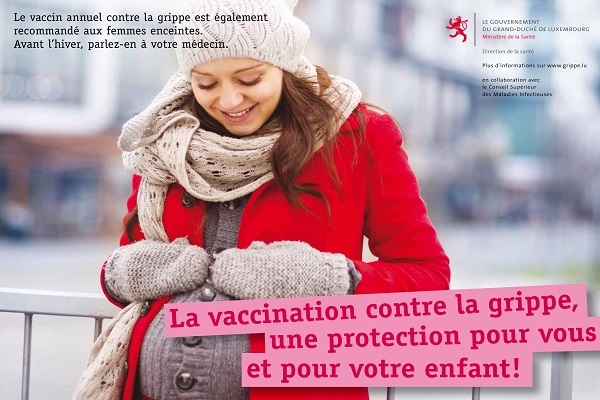 Credit: MSAN
Credit: MSAN
Luxembourg's Ministry of Health launched its annual seasonal flu vaccination campaign at the beginning of October, considered the best time to get vaccinated.
Administered between mid-October and the end of November, the flu vaccine remains the best protection to prevent complications of seasonal flu.
The information campaign aims to raise awareness among the general public and promote the seasonal flu jab before the start of the epidemic season, which usually runs from the end of the year until spring. The posters and brochures are particularly targeted at flu vaccination in people over 65, pregnant women and health professionals. For the target population at risk, the flu jab is covered by the Caisse nationale de santé (CNS) and is available in pharmacies and issued on medical prescription.
Flu can sometimes lead to serious complications such as pneumonia and can even be fatal to the most fragile members of society. Therefore, it is especially recommended that people with chronic diseases of the respiratory and cardiovascular system, diabetes, kidney problems or reduced immunity get vaccinated against the illness.
Vaccination is the most effective way to protect against the flu and its complications. It consists of a single injection, but must be repeated every year because the influenza virus is subject to constant seasonal variations. Vaccination against influenza is generally well tolerated and rarely produces side effects, ranging from mild fever to transient general malaise or pain at the injection site. 15 days after vaccination, the immune system is already ready to defend against the flu virus and immunity persists for at least six months.
Other tips to prevent contracting a flu or cold, the latter of which is more common but has similar symptoms, include respecting traditional hygiene rules, such as washing hands regularly with soap, coughing or sneezing into a tissue or the crease of your elbow, throwing out tissues after use, avoiding contact with sick people and regularly ventilating rooms.
For further information, consult the Health Portal www.sante.lu or the website www.grippe.lu.








